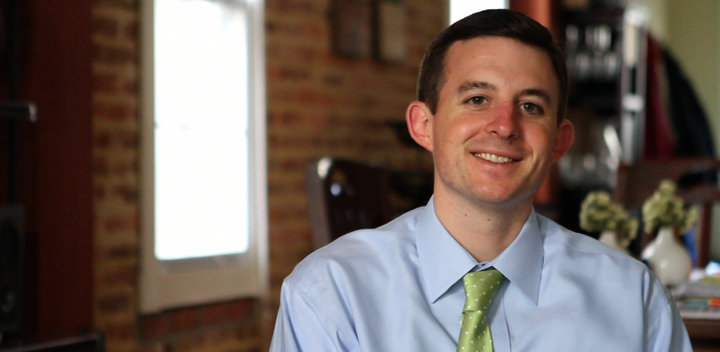Despite opposition from an association representing county governments, a bill that would free up state GIS data is poised to advance in the Maryland legislature this week.
State Sen. Bill Ferguson, a chief sponsor of SB94, told Technical.ly Baltimore that he believes it has the votes to pass out of the Senate’s Education, Health and Environmental Affairs Committee. The panel was expected to vote on the Senate version this week. A similar bill was also filed in the House, but a hearing isn’t scheduled until Feb. 25.
The bill, which was recommended by the newly-created Maryland Council on Open Data, would amend state law to guarantee that GIS mapping data is available largely for free. It was designed in the spirit of the Open Data Act, which was passed last year and encourages data to be made available to the public for free.
By having a process by which local government is recouping the costs, it actually inhibits the free flow of information.
The last regulations around public access to the mapping data were passed in 1992, when the technology was still new and more expensive to operate. Some Some GIS mapping data is already available for free, but the law still states that entities can charge for it.
At a Feb. 11 committee hearing, about 10 people testified in favor of the bill, noting that the proposal would lower the barriers for access to public data for private use.
“Most of the surveyors in Maryland are associated with small businesses,” said Timothy Quinn of the Maryland Society of Surveyors. “Having access to this information greatly reduces the amount of time we have to spend planning our projects, [which] reduces the cost to consumers. It’s just a great benefit to us.”
And it wouldn’t only benefit private interests.
Local governments also need access to the data, and have had trouble getting it from the state in the past. Elliott Plack, a Baltimore County GIS specialist who sits on the Open Data Council, described a situation where the County attempted to get data for right-of-ways along I-95 where land changed hands for the creation of Express Toll Lanes. Before turning over the data, the Maryland Transportation Authority required a licensing agreement.
“It ended up being such a burden that the county decided to drop the issue,” Plack said.
If the legislation passes, the data could be made available to the County without a licensing agreement.
However, the bill ran into opposition from some local entities. The Maryland Association of Counties (MACO) emerged as an opponent of the bill, arguing that some costs should still be able to be collected.
The organization wants overhead costs for maintaining software and hardware for the mapping data, said MACO Legal & Policy Counsel Leslie Knapp, Jr.
In the existing legislation, entities can also be charged for additional overhead costs like data gathering and “indirect costs.”
“In the spirit of open government, MACO is not asking for that,” Knapp said, noting that MACO’s opposition was “narrow.”
Knapp said MACO offered an amendment to the bill on Feb. 12, but hadn’t heard back about whether it would be included.
Knapp said MACO received input from the counties they represent, but Ferguson said he was “surprised” to hear the concern because the committee that drafted the bill received input from local governments, and didn’t hear any concerns.
“By having a process by which local government is recouping the costs, it actually inhibits the free flow of information, which is the intent of the bill,” Ferguson said.
With the committee viewing the bill favorably as it stands, Ferguson said he didn’t want to wait to move forward. The Baltimore-based legislator said he was “not going to hold the bill up for an amendment.”
Join the conversation!
Find news, events, jobs and people who share your interests on Technical.ly's open community Slack

Baltimore daily roundup: Gen AI's software dev skills; UpSurge Tech Ecosystem Report; MD service year program

Baltimore daily roundup: Mayoral candidates talk tech and biz; a guide to greentech vocabulary; a Dutch delegation's visit

Baltimore daily roundup: An HBCU innovation champion's journey; Sen. Sanders visits Morgan State; Humane Ai review debate


